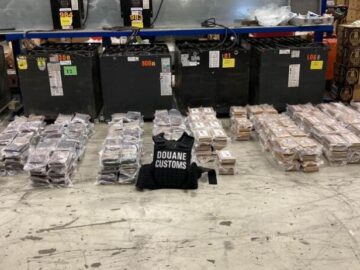Dark web drug dealer Benjamen Belmont helped in $40,000 kidnapping and assault

A man once jailed for importing a plethora of drugs through the dark web is back before the courts for his role in the kidnapping and torture of a man for a $40,000 debt that didn’t exist.
Benjamen Belmont was just 20 and a university student when he was first jailed in 2014 on a raft of drug charges, including importing MDMA [ecstacy], cocaine, LSD and cannabis bought from various websites.
He was released two years early in 2016 for those charges but was sent back to prison the next year after assaulting his partner.
Today, the 28-year-old was sentenced to 18 months’ intensive supervision for his role in attempting to extort a $40,000 drug debt from a man, along with two accomplices.
It was a plan that the Crown said earlier this year was hatched by his co-offender and partner Beverly O’Keeffe who was sentenced to three years in prison for her role.
At her sentencing in March the Crown said O’Keeffe had heard that the victim was in possession of a large amount of cash and organized with friends Darin Field and Belmont to extort it.
The trio kidnapped the man and took him to an address in Palmerston North, the court heard.
There, he was punched and choked by Belmont and O’Keeffe, and stabbed multiple times with a screwdriver in the leg and buttocks while he was questioned about where the money was.
But he didn’t have it and never did.
“Throughout this assault you and Ms O’Keeffe interrogated him about the whereabouts of the $40,000,” Judge Lance Rowe said.
“What occurred was tantamount to torture and it was to extract money in relation to a drug debt.”
Belmont left soon after assaulting the man and wasn’t involved in him being held hostage by O’Keeffe and Field who refused to take him to hospital while they questioned him further, instead giving the victim fruit, water and painkillers.
The Crown claimed O’Keeffe, a local meth dealer, was the ringleader in the plan while Field was merely an accomplice and received eight months’ home detention for his role.
According to the summary of facts, Belmont was on bail for possession of methamphetamine when the kidnapping took place.
The summary read more like a Hollywood movie script than real life.
It said Belmont, who had suffered a gunshot wound to the stomach a year earlier in a drug deal gone wrong, received a call from O’Keeffe claiming she knew the identity and location of a person who allegedly owed her $40,000 for a drug debt.
Belmont, O’Keeffe and Field picked the victim up and took him to an address where the assault began.
Unknown to them police had acquired a surveillance warrant, were listening to O’Keefe’s phone, and were watching her.
Police executed a search warrant on the house where the victim had been tortured and found the man staggering around the property.
In sentencing Belmont to 18 months of intensive supervision, Judge Rowe said the young man needed to guard against his addiction to methamphetamine for the rest of his life.
“You stand before me clean, sober, employed and with the support of your family,” Judge Rowe said.
“A lot could be undone by sending you to prison today.”
Belmont’s lawyer Esme Killeen told the court her client had made significant progress since the offending and had secured a job, was no longer using drugs, and had attempted to engage in restorative justice with the victim.
Belmont’s earlier offending was uncovered in 2013 when Customs intercepted three shipments of MDMA containing between 144 and 568 pills, with a street value of about $65,000.
Smaller parcels of cocaine, MDMA and LSD bound for the then Massey University student had previously been intercepted by Customs.
A search of Belmont’s home found pills and a firearm, while a search of another property he occupied found more MDMA, cocaine, LSD and methamphetamine, along with more than $80,000 in cash.
Belmont had created a sophisticated system, using several bank accounts, in an effort to avoid detection.
He was also found to have more than $120,000 in cash and various bank accounts, most of which he had transferred into bitcoin, a digital currency that can be used for anonymous online trading.
Found this interesting? Then check our main news page where you can find all articles related to Crypto, Crime, Darknet, Security and much more!




















